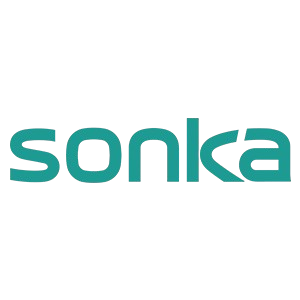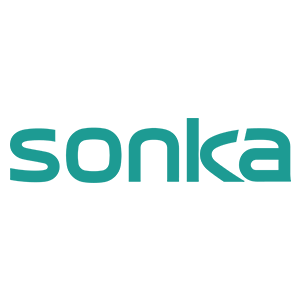Access to routine health screenings is often hindered by several factors that create barriers to preventive healthcare. These barriers include transportation issues, high costs, and lack of time which prevent many individuals from seeking essential health checkups. By addressing these issues, we can ensure wider access to screenings. For instance, providing free screenings in community centers can alleviate cost concerns, while multilingual services can reach diverse populations efficiently. Health organizations are already reporting success stories, such as increased attendance at screenings through localized community efforts. Statistics from various health organizations show improved attendance at screenings when such barriers are adequately addressed, underscoring the importance of these interventions in promoting preventive health.
Convenience plays a pivotal role in enhancing healthcare accessibility, particularly in urban areas where people often work varied hours. Placing health checkup kiosks strategically in high-traffic locations like shopping malls, airports, and workplaces maximizes user access. These locations ensure that individuals can access health services without disrupting their schedules. Case studies demonstrate increased screening participation when such services are available round-the-clock in places where people frequently work or transit, reinforcing the demand for flexible scheduling options to accommodate diverse lifestyles. Surveys indicate that the availability of after-hours services significantly boosts user engagement and facilitates consistent health monitoring.
Reducing wait times in traditional healthcare settings is a significant benefit of self-service health checkup kiosks. These kiosks streamline the checkup process, minimizing the need for lengthy waits. With user-friendly design elements like touchscreen interfaces and clear instructions, patients can conduct parts of their screenings independently, leading to quicker service and greater satisfaction. Feedback from users and health institutions highlights that self-service options not only reduce wait times but also improve patient experience, offering an efficient alternative to conventional healthcare practices. This approach enhances customer satisfaction, as patients appreciate the ease and speed of accessing vital health services.
Health checkup kiosks are equipped to monitor vital signs such as heart rate, blood pressure, and oxygen saturation levels. These essential metrics provide a comprehensive insight into a user's health status, facilitating proactive health management and early detection of potential health issues. Comprehensive vital sign monitoring is crucial because it can reveal underlying health conditions that may require medical attention. Studies have shown that regular monitoring significantly improves patient outcomes by enabling timely interventions and adjustments to health plans.
Advanced body composition analysis in health kiosks includes assessing metrics like body fat percentage, muscle mass, and BMI. This detailed analysis supports the development of personalized health plans, which are essential in addressing obesity and tailoring lifestyle interventions. Understanding body composition can help identify specific health risks and track progress over time. Obesity rates continue to rise globally, and effective body composition monitoring is a key component in mitigating this trend and promoting healthier lifestyles through precise insights.
Health kiosks offer integrated telehealth consultation capabilities, allowing users to connect with healthcare professionals remotely. This integration enhances accessibility to specialist care and reduces the time required to receive medical consultation. The benefits of telehealth, including convenience and efficiency, are increasingly recognized; recent statistics indicate a notable growth in telehealth services and high patient satisfaction rates due to these technologies. Integrated telehealth provides a solution to geographic barriers and improves overall health care experience by linking users directly to necessary health resources.
The SONKA Health Checkup Kiosk solutions provide essential pre-work health screenings, which include alcohol testing to enhance workplace safety. By offering these screenings, employers can significantly reduce alcohol-related incidents, which ultimately lead to a safer and more productive work environment. Such measures not only protect employees but also contribute to a decrease in workplace accidents, as supported by studies demonstrating the crucial role of regular screenings in maintaining workplace safety. Implementing these kiosks can be a proactive step towards a healthier workspace, fostering improved productivity and employee well-being.
The X60HD multi-parameter monitor from SONKA represents the forefront of real-time health monitoring technology. This versatile device is capable of simultaneously tracking multiple vital signs like blood pressure, oxygen saturation, and body temperature, which are critical for comprehensive health assessments and urgent care. The real-time data collection feature of the X60HD allows for swift communication between individual health monitoring systems and healthcare providers, improving patient outcomes through timely intervention and proactive management strategies.
The SONKA Maternity Health & BMI Telemedicine Station caters specifically to the needs of expectant mothers by providing advanced monitoring and virtual consultations. The integration of telemedicine features allows for remote access to healthcare professionals, ensuring that maternal health metrics, including BMI monitoring, are thoroughly tracked for both maternal and fetal health. Such telehealth services have proven effective in improving maternal health outcomes by delivering timely guidance and support.
SONKA's clinical-grade body composition analyzers are designed to provide precise health metrics necessary for efficient health management. Healthcare providers can utilize these tools to develop tailored health plans for patients based on detailed body composition data, including measurements of muscle mass and fat distribution. Evidence suggests that patients using advanced body composition analysis benefit from improved health management outcomes, including better fitness and lifestyle interventions.
SONKA's adjustable BMI monitoring kiosks are essential in managing chronic care by helping patients track weight-related health risks. These devices offer customizable settings that cater to individual patient profiles and monitoring histories. Continuous BMI monitoring is an effective strategy for managing chronic conditions, with statistics showcasing its role in improving health management outcomes and adherence to treatment plans.
Early detection is crucial in managing chronic diseases like hypertension and diabetes. Identifying these conditions at an early stage allows for timely intervention, which can improve patient outcomes and reduce healthcare costs over time. Health checkup kiosks play a vital role in screening for hypertension and diabetes due to their accessibility and ease of use. Equipped with sensors that monitor vital signs such as blood pressure and glucose levels, these kiosks provide regular monitoring that is essential for early detection. Studies demonstrate that early intervention leads to better health results, decreasing the likelihood of complications and hospitalizations related to chronic diseases. This proactive approach is not only beneficial for individual health but also for optimizing healthcare resources effectively.
Continuous monitoring through health kiosks is particularly beneficial for at-risk populations, including the elderly and those with a family history of chronic diseases. These kiosks offer a practical solution by incorporating real-time tracking of important health metrics, enabling instant feedback and adjustments to treatment plans. Outreach programs utilizing kiosks can effectively engage these populations, providing essential health services where healthcare facilities may be sparse. According to health reports, regular monitoring and interventions through kiosks have shown improved health outcomes in these groups, reinforcing their importance in community health strategies. As health trends are analyzed from aggregated data, it becomes evident that continuous monitoring significantly impacts the wellness of vulnerable groups.
Data analysis is pivotal in recognizing health trends within populations served by health checkup kiosks. By collecting and analyzing aggregated data, healthcare providers can make informed decisions that enhance public health strategies. This data serves as a foundation for developing healthcare policies and tailoring interventions to meet community needs effectively. For instance, case studies show how data-driven approaches have led to improved community health outcomes by addressing prevalent health issues identified through kiosks. As more data is gathered, it can shape future initiatives and partnerships, ultimately driving better disease prevention and health promotion tactics. Using kiosks for comprehensive trend analysis not only improves immediate healthcare delivery but also builds towards sustained health enhancement across populations.


Copyright © 2025 by Shenzhen Sonka Medical Technology Co., Limited - Privacy policy